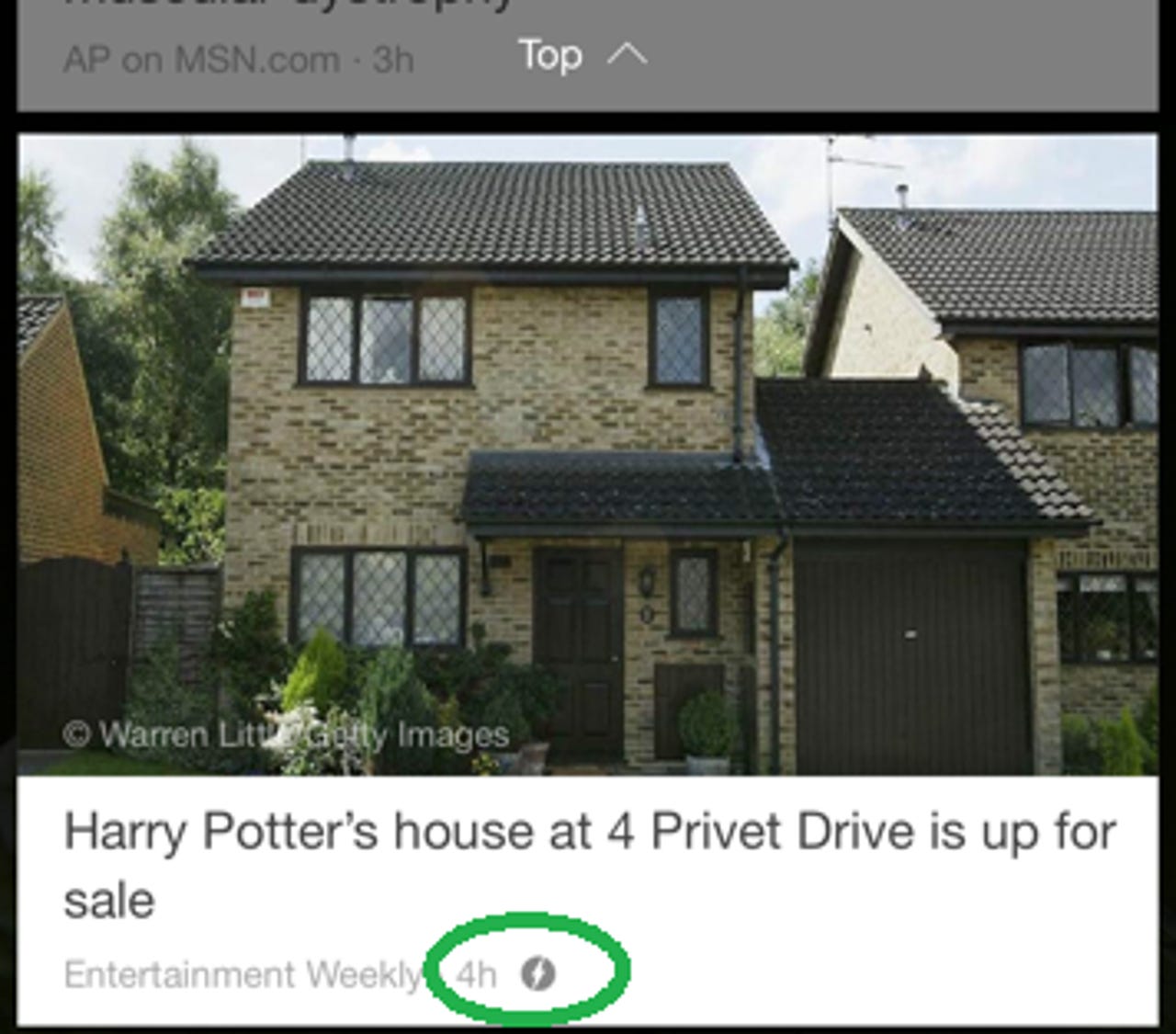Microsoft's Bing backs Google's open source AMP for faster mobile page loads


Bing will now automatically detect AMP pages, which Microsoft says download significantly faster.
Microsoft has rolled out support for Google's Accelerated Mobile Pages (AMP) in its Bing app, aiming for faster load times for its mobile search.
AMP is Google's answer to Facebook's faster mobile initiative, Instant Articles, and offers a lightweight version of webpages with faster load times on mobile devices.
Google rolled out support for it in its Google app for iOS in May, showing a lightning-bolt symbol and 'AMP' next to news articles from publishers that support AMP to indicate which stories will load instantly.
Microsoft uses the same lightning-bolt icon to convey AMP pages in its updated Bing app for iOS and Android. The app will automatically detect and use news articles that have a corresponding AMP page.
"In case there are AMP pages associated with the article, we always give preference to downloading the available AMP page from the servers that are closer to the end user, preferably via an AMP cache for a faster experience," the Bing team said.
If it doesn't detect AMP, the app will show the non-AMP news article, and optimize that page using other techniques. Unlike Google, which gives preference to AMP pages, Microsoft noted that AMP does not impact its ranking algorithms.
Microsoft said it started testing AMP last May and finds that AMP pages load about 80 percent faster than non-AMP pages, and reduce the bandwidth required to download them. Google has previously claimed that AMP pages load four times faster and use 10 times less data than non-AMP pages.
While AMP was initially targeted at publishers, it's also being used for online retail, with eBay this month rolling out limited support for it on the mobile web. eBay users can't 'Add to cart' items but can still browse. It's aimed at improving the browsing experience where users come to its site from external links, such as search results.
MORE ON MICROSOFT BING AND GOOGLE AMP
- Microsoft has its own 'Bing Assistant' bot in the works
- Microsoft's Bing now gives you more detailed warnings about malware, phishing sites
- Google previews expanded AMP in search results
- Microsoft to Bing users: No more shady third-party ads for tech support, password recovery
- Google rolls out AMP for iOS, makes other improvements
- Apple squares up to Facebook Instant Articles, Google AMP: Apple News Format now open to all
- Windows 10's built-in search now supports Bing and Microsoft's Edge exclusively
- TechRepublic: How to speed mobile page load times with AMP and WordPress
- CNET: The complete guide to switching to Microsoft's Edge browser